What If L Had Won? An Alternate Ending to Death Note
What if L defeated Kira? Dive into an alternate Death Note ending where justice prevails, and explore the shocking consequences of L outsmarting Light Yagami. From legacy shifts to moral chaos—discover how one victory reshapes the battle between genius and godhood. 📖✨ #DeathNote #AlternateEnding #LvsLight
DEATH NOTE
Anime Fever
3/6/202510 min read
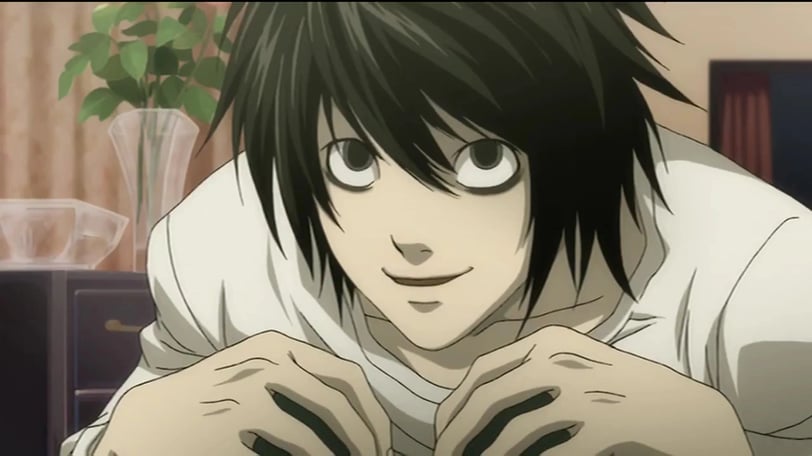

Few stories have gripped global audiences quite like Death Note. Since its debut, the anime and manga series has sparked debates about justice, morality, and what happens when power corrupts even the most brilliant minds. Its iconic ending—where Light Yagami dies a broken tyrant, while L’s legacy lives on—is hauntingly ambiguous. But what if the story had unfolded differently? What if L, the enigmatic detective, had outsmarted Light and ended his reign as Kira before it spiraled out of control?
This essay dives into that provocative “what if,” imagining a world where L’s razor-sharp intellect triumphs. We’ll explore the immediate fallout of Light’s defeat, the long-term consequences for society, and how the story’s core themes of hubris and legacy shift when the “villain” loses. Along the way, we’ll analyze how key characters—like Light, L, and the Task Force—would evolve, and whether L’s victory would truly bring justice… or just a different kind of chaos.
Buckle up. It’s time to rewrite the rules of the Death Note universe.
Alternate Narrative: The Immediate Aftermath of L’s Victory
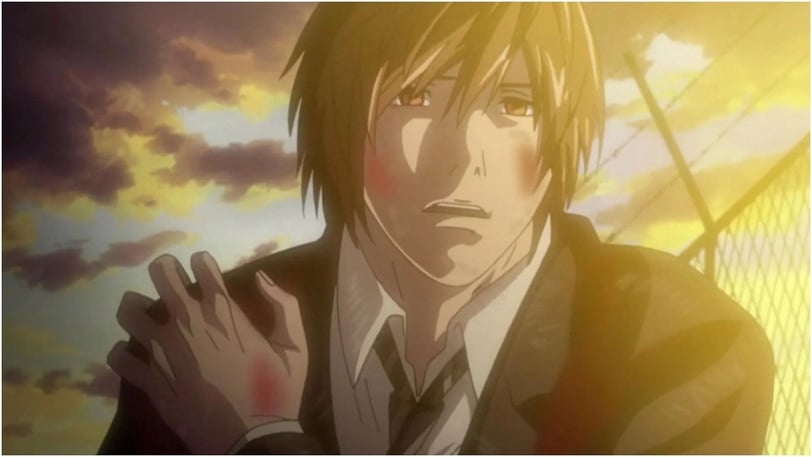

The Turning Point
L’s victory hinges on exploiting Light’s hubris. Imagine this: during the Yellow Box Warehouse showdown, L fabricates a fake Death Note page, tricking Light into confessing on camera. Or perhaps Light, overconfident in his control over the Task Force, slips up by writing a name too publicly. L, ever the strategist, could also weaponize Misa Amane’s vulnerability—exposing her as the Second Kira to force a rift. Alternatively, L’s mastery of psychological warfare breaks Light’s composure, leading him to incriminate himself in a fit of rage. Either way, L’s triumph isn’t just tactical—it’s a brutal takedown of Light’s god complex.
Public Reaction
The revelation that Kira is Light Yagami fractures society. Social media erupts: hashtags like #KiraLied and #JusticeForLight trend globally. While some mourn their fallen “savior,” others celebrate L as a hero. Protests erupt outside the Japanese Task Force headquarters, with die-hard Kira supporters burning effigies of L. Meanwhile, conspiracy theories flourish—was Light framed? Did L manipulate evidence? Governments scramble to address the fallout, torn between condemning Kira’s methods and fearing backlash from his cult-like followers. The media paints Light as both a tragic genius and a terrorist, amplifying the moral chaos.
Legal Consequences
Light’s trial becomes a global spectacle. Prosecutors demand the death penalty, citing his role in thousands of murders. Yet his defense argues insanity, claiming the Death Note corrupted his mind. L, however, complicates matters: would he push for a public execution to deter future Kiras, or advocate for life imprisonment to study Light’s psyche? Darker theories arise—could L secretly manipulate the trial to ensure Light’s suffering? Meanwhile, Ryuk lurks in the shadows, toying with the outcome. Would he write Light’s name to end his misery, or let humans deliver their flawed justice?
Ryuk’s Role
Ryuk’s boredom-driven mischief takes a backseat here. If Light loses, the Shinigami might shrug and let him face earthly punishment—after all, human drama amuses him. But what if L’s victory threatens the Death Note’s secrecy? Ryuk could intervene, killing Light to “preserve the game.” Alternatively, he might hand the notebook to a new owner, ensuring chaos continues. Either way, his indifference underscores the story’s bleak irony: even in defeat, Light’s fate remains tied to forces beyond his control.
The Long-Term Consequences
The Death Note’s Legacy
Even with Light defeated, the Death Note’s influence lingers. Ryuk might have dropped another notebook in the human world, sparking a shadow war among new Kiras. Governments, too, could secretly study the artifact, weaponizing its power for counterterrorism—raising ethical nightmares. Meanwhile, online forums idolize Light’s ideology, inspiring copycat killers who twist “justice” into authoritarianism. The cycle continues: every time a notebook resurfaces, society debates whether to burn it or exploit it. The Death Note becomes a metaphor for humanity’s darkest temptation—absolute power—and its inevitable corruption.
L’s New Burden
Victory forces L into the spotlight, a role he loathes. Publicly hailed as a hero, he privately grapples with guilt over Light’s downfall. Did he save the world… or crush a misguided idealist? L’s paranoia grows: he monitors global crime, fearing new Kiras, while wrestling with his moral ambiguity. His methods—wiretapping, manipulation—are now scrutinized. Could he become a tyrant like Light? Or does he retreat, leaving the world to rebuild without him? Either way, L’s triumph leaves him hollow, a genius forever haunted by the cost of “justice.”
Global Power Shifts
The “Kira Era” reshapes geopolitics. Authoritarian regimes demand surveillance states to prevent future Kiras, while activists fight for privacy rights. The Task Force becomes a global watchdog, but its reliance on L’s tactics sparks distrust. Meanwhile, underground networks trade Death Note pages like nuclear codes. Criminal organizations and activists alike seek the notebooks, blurring lines between right and wrong. The UN debates a “Kira Protocol” to govern supernatural threats, but consensus crumbles. The world teeters between order and tyranny, proving Light’s vision of “utopia” was a mirage all along.
Misa Amane’s Fate
Misa’s devotion to Light becomes her undoing. After his arrest, she spirals—hoarding Death Notes, plotting revenge, or crumbling into catatonia. In a tragic twist, Ryuk might offer her Light’s notebook, tempting her to “finish his work.” Alternatively, she becomes a vengeful Kira, targeting L’s allies until her own demise. Or, stripped of purpose, she dies by suicide, a final casualty of Light’s manipulation. Her end mirrors Light’s hubris: a loyal pawn sacrificed in a game she never truly understood.
The Legacy of L’s Victory
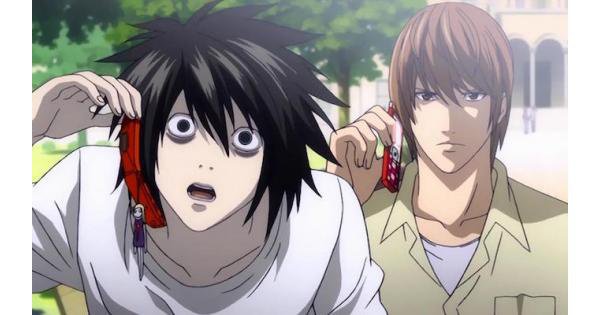

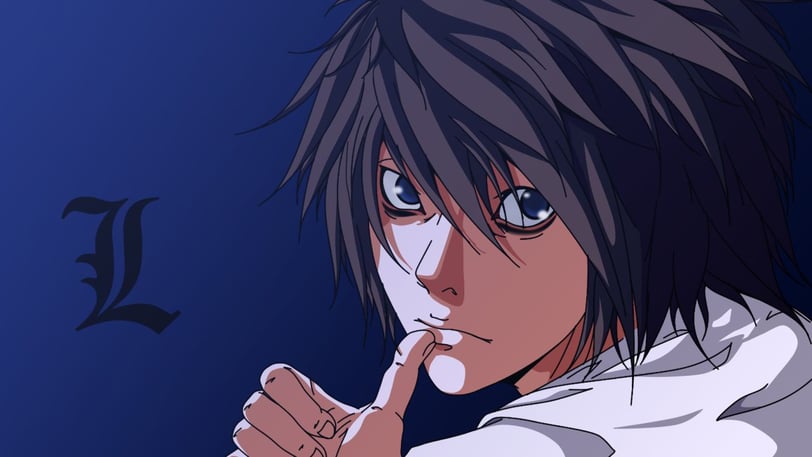

Moral Ambiguity
L’s victory forces a reckoning with moral relativism. While his win seemingly validates his methods—surveillance, deception, and psychological warfare—it also exposes the fragility of “justice.” By defeating Light, L proves that absolute conviction (even in a “good” cause) can mirror the tyranny it seeks to destroy. Fans debate: Did L become the lesser evil, or did he reveal that all systems of justice are inherently flawed? His triumph leaves a haunting question—can any victory be truly “pure” when it mirrors the enemy’s ruthlessness?
Light’s Legacy
Defeated, Light’s legacy fractures. To some, he’s a martyr—a visionary crushed by a world unready for radical change. Online cults idolize him, twisting his crimes into a “necessary purge.” Others see only a cautionary tale: a genius undone by his own ego. Yet his story lingers in pop culture—a symbol of how ideals curdle into fascism. Historians might frame him as a footnote, but true believers keep his ideology alive, whispering, “Kira was right.” His name becomes a Rorschach test: hero, villain, or a mirror reflecting humanity’s darkest ambitions?
Impact on Future Generations
This alternate ending reshapes fan interpretations of Death Note’s core themes. L’s victory reframes the series as a warning against hubris, not just a battle of wits. It challenges audiences to ask: Is justice worth sacrificing ethics? Could Light’s vision of utopia ever be justified? The story evolves into a parable for real-world dilemmas—AI ethics, authoritarianism, and the seduction of power. For fans, it’s a reminder that even “winning” leaves scars. Light’s defeat doesn’t end the debate; it amplifies it, proving that humanity’s struggle between ambition and morality is eternal.
Character Analysis: How L’s Victory Alters Key Figures
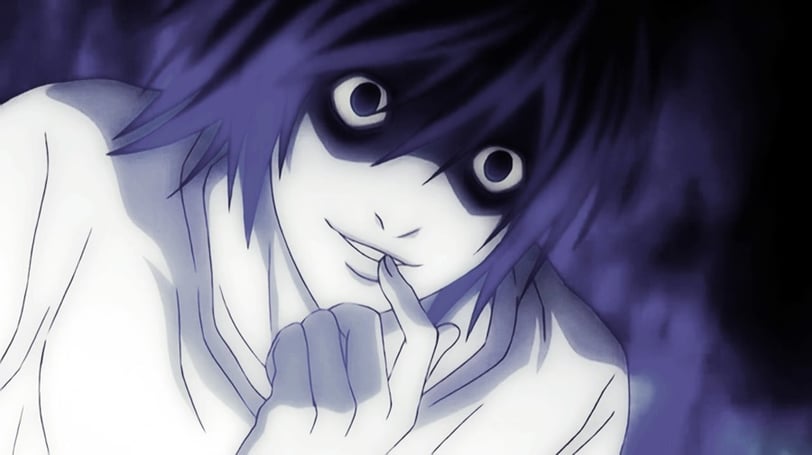

L’s Character Arc
Victory leaves L more isolated than ever. Having dismantled Light’s godhood, he faces an existential void: What defines him without a worthy opponent? Initially, he might indulge in rare moments of vulnerability—eating sweets openly, even smiling—but these fade as guilt sets in. Did he save the world, or merely prove that justice is a game? His methods—manipulating allies, blurring ethical lines—begin to haunt him. In darker interpretations, L’s paranoia escalates; he launches secret projects to eradicate future Kiras, becoming the very dictator he swore to stop. His arc ends not in triumph, but in quiet despair, a genius forever trapped by his own mind.
Light’s Downfall
Light’s defeat is a psychological implosion. Stripped of his Kira identity, he oscillates between delusional pride (“You’ll see—I’ll rise again!”) and crushing shame. In prison, he scribbles manifestos in his cell, clinging to his “divine” mission. But as days pass, cracks form: he fixates on L’s face during their final confrontation, tormented by the realization that his hubris blinded him. In his last moments—whether facing execution or a life sentence—he whispers not defiance, but a chilling admission: “I… miscalculated.” His downfall isn’t heroic; it’s a raw, human unraveling of a boy who became a monster.
The Task Force
The Task Force grapples with betrayal. Soichiro Yagami, Light’s father, collapses under the weight of his son’s crimes, retreating into silent grief. Aizawa channels rage into reforming law enforcement, determined to prevent another Kira—but distrusts L’s shadowy influence. Matsuda, the emotional heart of the group, spirals. Does he seek redemption by advocating for Light’s humanity, or does he snap, blaming himself for missing the signs? Meanwhile, Mogi becomes a silent guardian, protecting the team’s fragile unity. Their dynamic shifts from camaraderie to quiet resentment, each member wrestling with the cost of “justice.”
Light Yagami: The Tragic Hubris of a Fallen God
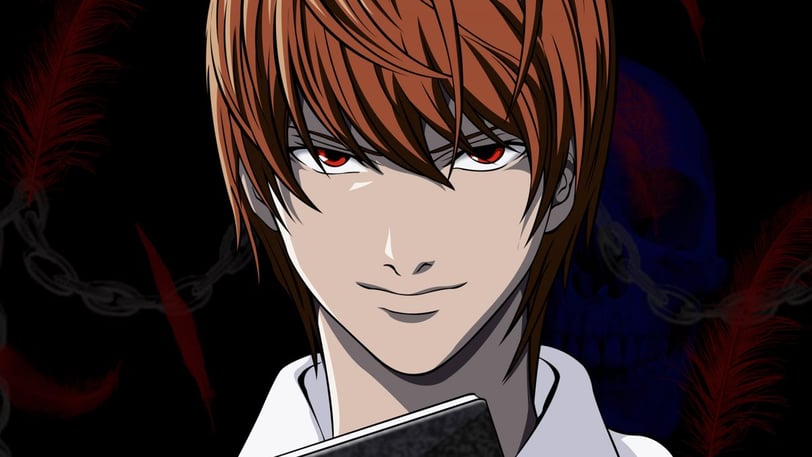

From Idealism to Tyranny
Light begins as a idealistic prodigy, convinced the Death Note is a tool to erase evil. His early kills target criminals, framed as a “purge” for a better world. But as he gains power, his moral boundaries dissolve. To protect his identity, he murders innocents—Lind L. Tailor, the FBI agents, even his own allies. What begins as a crusade becomes a tyranny of control; Light’s “justice” demands submission, not salvation. His descent is marked by chilling rationalizations: “I’ll create a world where no one dares oppose me.” The boy who sought utopia becomes a god who demands worship.
The Corruption of “Justice”
Was Light evil, or a pawn of power? His ideology—“kill the wicked to save the innocent”—initially mirrors L’s mission. But the Death Note’s absolute power warps his vision. By the end, he’s indistinguishable from the criminals he condemned: manipulative, paranoid, and willing to sacrifice anyone to retain control. This duality fuels fan debates. Some see him as a tragic antihero, corrupted by a tool he couldn’t wield responsibly. Others argue his actions—killing for convenience, silencing dissent—reveal a sociopath from the start. His “justice” dies the moment he prioritizes his ego over his ideals.
Final Moments: Defiance or Regret?
In L’s victory, Light’s end is shatteringly human. Imagine him in a cold cell, stripped of the Death Note. At first, he rages: “You’ll see! The world needs Kira!” But as days pass, his bravado cracks. He replays his failures—underestimating L, alienating allies, sacrificing Misa. In a haunting twist, he scribbles a final journal entry: “A god cannot admit defeat… yet even gods fall.” Does he feel remorse? Perhaps not. But in his last breath, he stares at the ceiling, whispering not defiance, but a childlike plea: “I just… wanted to be right.”
The Task Force: Guilt, Redemption, and Trust
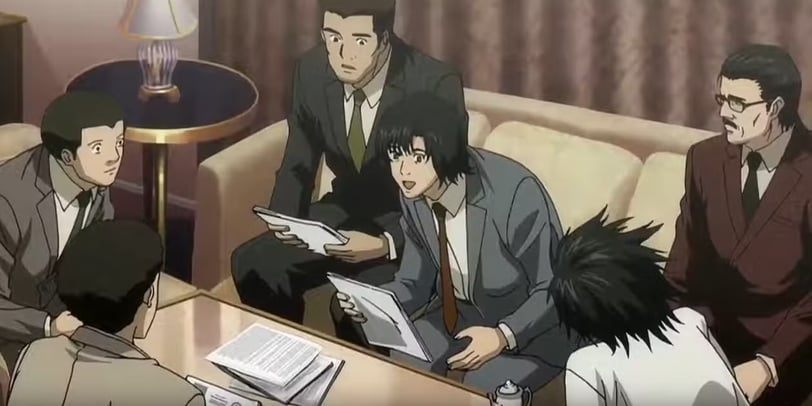

Soichiro Yagami’s Agony
Soichiro’s world collapses when Light is exposed. The man who once vowed to “destroy Kira” faces a soul-crushing truth: his son is Kira. He oscillates between denial (“This is a mistake!”) and self-blame (“I failed as a father”). His health deteriorates; he either retires in shame or clings to duty, a hollow shell of his former self.
Aizawa and Mogi’s Struggle
Aizawa, fueled by anger, pushes to reform the justice system—only to clash with bureaucracy and public distrust. He resents L’s secrecy, questioning whether their victory justified the moral compromises. Mogi, ever stoic, becomes the team’s anchor, advocating for transparency. Yet both grapple with survivor’s guilt: Why did they trust Light? Their camaraderie frays, rebuilt slowly through shared resolve to prevent another Kira.
Matsuda’s Crossroads
Matsuda faces a reckoning. Initially, he spirals—consumed by guilt for idolizing Light (“I believed in him!”). But L’s victory offers him purpose: he becomes a vocal advocate for ethical policing, determined to redeem their mission. Alternatively, his trauma turns inward; he second-guesses every decision, fearing another betrayal. His arc becomes a microcosm of the series’ theme: can trust be rebuilt once it’s shattered?
Conclusion
L’s triumph over Light lays bare the fragility of justice—a victory forged through morally gray methods, not pure heroism. Both geniuses, in their obsession with reshaping the world, reveal the duality of human nature: even “good” ends require monstrous means. Light’s descent from idealist to tyrant underscores how power corrupts, while L’s win forces us to ask: Is a “just” victory still valid if it mirrors the enemy’s ruthlessness?
Does this alternate ending satisfy? For some, yes—a clear moral win where the “right” side prevails. But it also strips away the original story’s haunting ambiguity. Death Note’s power lies in its refusal to simplify good vs. evil; L’s victory, while cathartic, risks reducing its complex themes to a tidy resolution. Yet this version amplifies a crucial truth: no one wins unscathed. L’s guilt, Light’s ruin, and the Task Force’s fractured trust all testify to the cost of “justice.”
Ultimately, Death Note endures because it mirrors our own ethical struggles. Whether Light falls or triumphs, the series challenges us to confront uncomfortable questions: How much would we sacrifice for a better world? And who decides what “better” means? In a reality where power and morality clash daily, the story remains a chilling mirror—reflecting the best and worst of humanity, no matter the ending.
Read Also: L vs. Light: Who Was the Real Genius in Death Note?
Read Also: The 6 Hidden Messages in Death Note You Probably Missed
Read Also: Death Note Ending Explained: What Really Happened to Light Yagami?
